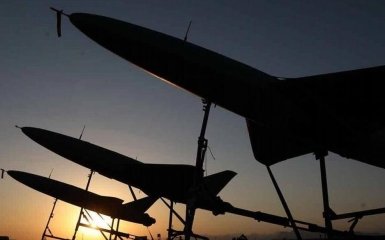In September 2024, there was not a single day when the Russian occupiers did not launch suicide drones over Ukraine.
Points of attention
- Throughout September 2024, Russia carried out daily attacks on Ukraine using Shahed drones, launching an average of 44 attack UAVs per day.
- An analysis of the data from the Air Force of the Armed Forces of Ukraine revealed that 1,107 out of 1,339 Russian missiles were shot down during these attacks.
- Andriy Kovalenko, head of the Center for Countering Disinformation of the NSDC, warns of Russia's new goal to intensify terror against Ukraine, aiming for almost 24-hour mode of attacks using Shaheds.
- The Russian air defense system is pointed and less adept at countering UAVs compared to the Ukrainian system, potentially leading to increased failures in defense with a rise in the intensity of attacks.
- The use of Russian Shahed drones as reconnaissance and short-range strike weapons poses a serious threat to Ukraine, requiring strategic measures to counter these relentless assaults.
Russia attacks Ukraine every day with Shaheds
In total, the enemy launched 1,339 Shahed-type attack UAVs over Ukraine, of which 1,107 were shot down, and some were suppressed by EW.
This is evidenced by the analysis of data from the Air Force of the Armed Forces of Ukraine.
On average, the Russians launched 44 Shaheds every day. The occupiers launched the most attack UAVs on September 14 — 72.

In September, there was not a single day without shahed launches.
Russia wants to significantly increase terror against Ukraine
Andriy Kovalenko, head of the Center for Countering Disinformation of the NSDC, warns that one of the new goals of the aggressor country of the Russian Federation is to switch to an almost 24-hour mode of attacks on Ukraine.
According to Andrii Kovalenko, regular raids by Russian "shaheeds" are an element of intelligence.
For the enemy, the mentioned drones remain precisely striking weapons at short distances.
As for distant ones, the main function is reconnaissance. Increasing the production of cans also has its own purpose — they want to go on an almost 24-hour mode of attacks in the future, so that alarms in the regions become common. But this game can be played by two people, — the head of the CPD warns the Russian occupiers.
He also draws attention to the fact that the Russian air defense system, unlike the Ukrainian one, has a point nature and is not able to fully cover the aggressor country from UAVs.
And an increase in the intensity of attacks in general will lead to more regular failures of air defense of the Russian Federation, following the example of Toropets, Kovalenko predicts.



